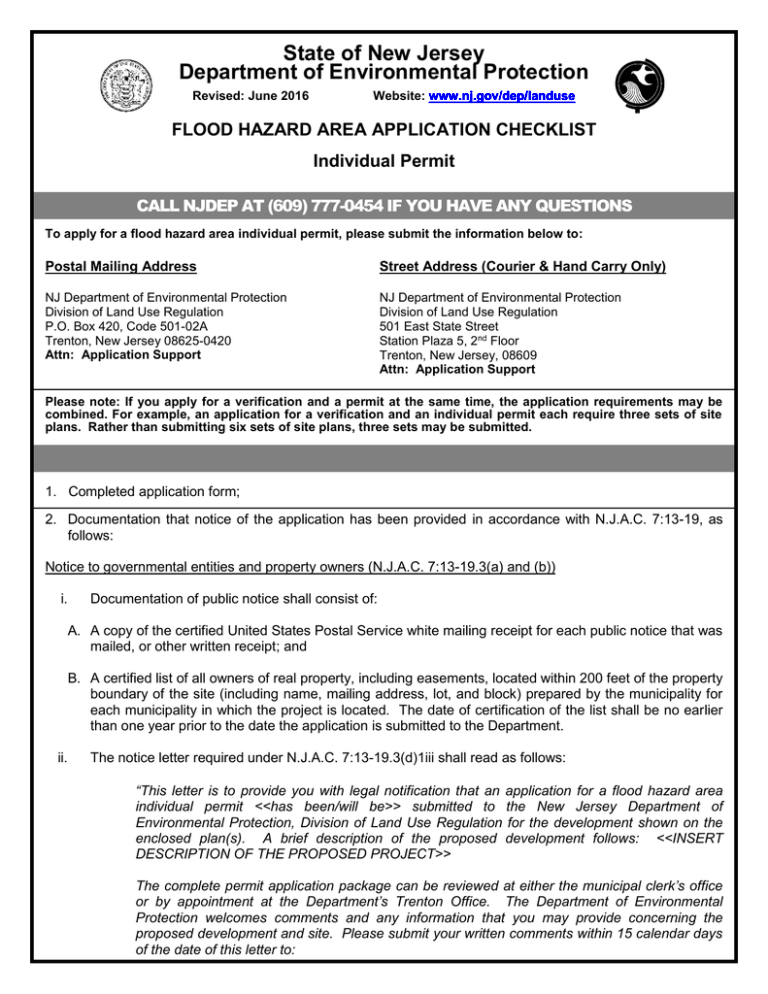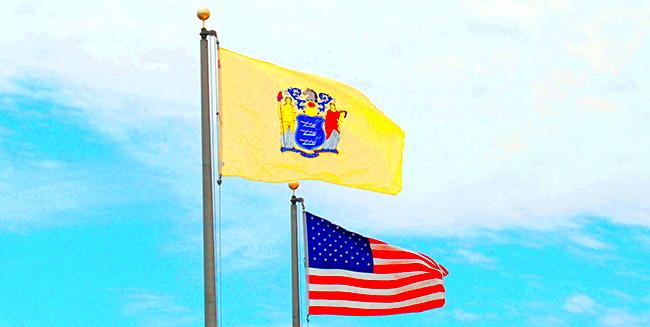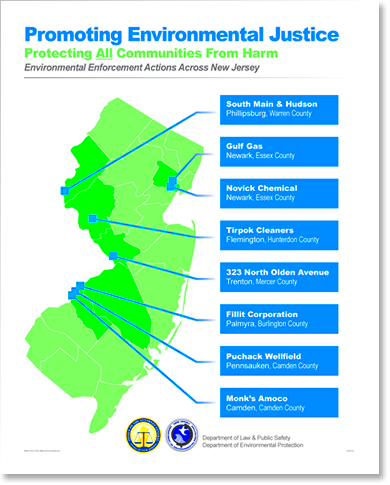Understanding New Jersey Environmental Regulations
New Jersey has a rich natural landscape, but it also faces various environmental challenges. To protect its resources, the state has developed a set of environmental regulations. These regulations aim to safeguard air and water quality, manage waste, and preserve wildlife habitats. Understanding these regulations is essential for residents, businesses, and anyone interested in the state’s environmental health.
Key Environmental Laws in New Jersey

New Jersey’s environmental laws cover a wide range of issues. Here are some of the most significant ones:
- New Jersey Pollutant Discharge Elimination System (NJPDES): This law regulates discharges into waters to maintain water quality.
- New Jersey Solid Waste Management Act: It governs the disposal and management of solid waste to protect public health and the environment.
- Air Pollution Control Act: This act aims to control air pollution from various sources to improve air quality.
- New Jersey Spill Compensation and Control Act: It addresses the cleanup of hazardous substance spills and provides compensation for damages.
- Freshwater Wetlands Protection Act: This law protects wetlands, which are crucial for biodiversity and flood control.
These laws are enforced by various state agencies, including the Department of Environmental Protection (DEP), which ensures compliance and implements programs to promote sustainability.
Impact of Regulations on Businesses

Environmental regulations significantly influence how businesses operate in New Jersey. Here’s how:
- Compliance Costs: Businesses may incur costs for compliance, including permits, monitoring, and reporting.
- Operational Changes: Companies often need to alter their operations to meet environmental standards, which can require investments in new technologies.
- Market Opportunities: Adhering to regulations can create opportunities for businesses in green technologies and sustainable practices.
- Reputation Management: Businesses that comply with environmental laws may enhance their reputation among consumers who value sustainability.
While regulations may seem burdensome, they also encourage businesses to adopt environmentally friendly practices, which can lead to long-term benefits. By focusing on sustainability, companies can not only comply with the law but also contribute positively to the environment.
Permitting Process for Environmental Compliance

The permitting process for environmental compliance in New Jersey can seem daunting, but it’s essential for ensuring that businesses operate within legal guidelines. This process ensures that any potential impact on the environment is evaluated before a project begins. Here’s a simplified overview of how it works:
- Application Submission: The first step involves submitting a detailed application to the New Jersey Department of Environmental Protection (DEP). This application typically includes information about the project, potential environmental impacts, and proposed mitigation measures.
- Review Process: Once the application is submitted, the DEP reviews it. They assess the potential impacts on air, water, and land. This may involve public hearings or requests for additional information.
- Permit Issuance: If the application meets all regulatory requirements, the DEP will issue a permit. This permit outlines the conditions that the business must follow to minimize environmental impact.
- Monitoring and Compliance: After the permit is granted, businesses must adhere to the outlined conditions. The DEP may conduct inspections to ensure compliance with the permit terms.
In summary, the permitting process is a critical step in maintaining New Jersey’s environmental integrity, allowing for development while protecting natural resources.
Enforcement and Penalties for Non-Compliance
Enforcement of environmental regulations is crucial for protecting New Jersey’s environment. When businesses fail to comply with these regulations, the consequences can be serious. Here’s how enforcement works:
-
- Inspections: The DEP conducts regular inspections to ensure that businesses are following environmental laws and permit conditions.
- Reporting Violations: If a violation is found, the DEP can issue a notice of violation (NOV), requiring the business to address the issue.
- Penalties: Non-compliance can lead to significant penalties, including:
| Type of Violation | Potential Penalty |
|---|---|
| Minor Violations | Fines up to $10,000 |
| Major Violations | Fines exceeding $10,000 and possible legal action |
- Legal Action: In severe cases, the state may take legal action against a business, which can lead to court proceedings and further penalties.
Understanding these enforcement mechanisms is vital for businesses. Compliance not only avoids penalties but also contributes to a healthier environment for everyone.
Role of Local Governments in Environmental Regulation
Local governments play a significant role in enforcing environmental regulations in New Jersey. While state agencies set the overarching laws, local entities are often responsible for implementation and compliance. Here’s how local governments contribute:
- Local Ordinances: Many municipalities enact their own environmental regulations, tailored to their specific needs and challenges. These ordinances can cover issues like zoning, waste management, and land use.
- Permit Issuance: Local governments may handle the permitting process for smaller projects, streamlining approvals for businesses while ensuring compliance with state laws.
- Community Engagement: Local governments often engage with residents and businesses to educate them about environmental regulations. This can foster a culture of sustainability within the community.
- Enforcement: Local agencies conduct inspections and enforce ordinances, working alongside state agencies to ensure compliance and address violations promptly.
In conclusion, local governments are crucial in bridging the gap between state regulations and community needs, ensuring that environmental protections are upheld at all levels.
Recent Changes in Environmental Policies
New Jersey is constantly evolving its approach to environmental protection, responding to new challenges and opportunities. Recent changes in environmental policies reflect the state’s commitment to sustainability and public health. Here are some of the notable updates:
- Strengthening of Air Quality Standards: New Jersey has revised its air quality regulations to align more closely with federal standards, aiming to reduce emissions from industrial sources and improve overall air quality.
- Increased Focus on Climate Change: The state has introduced new initiatives to combat climate change, including setting aggressive carbon reduction targets and promoting renewable energy sources like solar and wind.
- Revised Water Quality Regulations: Updates have been made to regulations governing the quality of drinking water, including stricter limits on contaminants like lead and PFAS (per- and polyfluoroalkyl substances).
- Expansion of Protected Lands: New policies have led to the designation of additional areas as protected lands, helping to conserve wildlife habitats and biodiversity.
- Enhanced Waste Management Practices: New recycling and waste reduction programs have been implemented, encouraging communities to reduce landfill waste and promote composting.
These changes show New Jersey’s proactive approach to environmental issues, aiming to create a healthier and more sustainable future for its residents.
FAQs about New Jersey Environmental Regulations
Understanding New Jersey’s environmental regulations can be challenging, so here are some frequently asked questions to clarify key points:
- What is the purpose of environmental regulations? Environmental regulations aim to protect air and water quality, manage waste, and ensure public health.
- Who enforces these regulations? The New Jersey Department of Environmental Protection (DEP) is the primary agency responsible for enforcing environmental laws.
- What happens if a business violates these regulations? Violations can lead to fines, penalties, and legal action. Businesses may receive a notice of violation and must take corrective action.
- How can I report an environmental violation? You can report violations to the DEP, which will investigate and take appropriate action if necessary.
- Are there resources available for businesses to comply? Yes, the DEP provides various resources, including guidance documents and workshops to help businesses understand compliance requirements.
These FAQs help demystify some aspects of environmental regulations in New Jersey, encouraging informed participation from residents and businesses alike.
Conclusion and Future Considerations
New Jersey’s environmental regulations play a crucial role in protecting the state’s natural resources and public health. As we look to the future, several key considerations arise:
- Adaptability to Climate Change: Continued adaptation of policies will be necessary to address the impacts of climate change, including rising sea levels and increased flooding.
- Community Involvement: Engaging local communities in environmental decision-making will be essential for fostering a culture of sustainability and accountability.
- Technological Innovations: Embracing new technologies will help improve compliance, monitoring, and enforcement of environmental regulations.
- Collaboration Between Agencies: Increased collaboration between state and local governments, as well as private organizations, can enhance the effectiveness of environmental protection efforts.
In conclusion, New Jersey’s environmental regulations are evolving to meet the needs of its residents and the environment. By staying informed and engaged, we can all contribute to a sustainable future.


